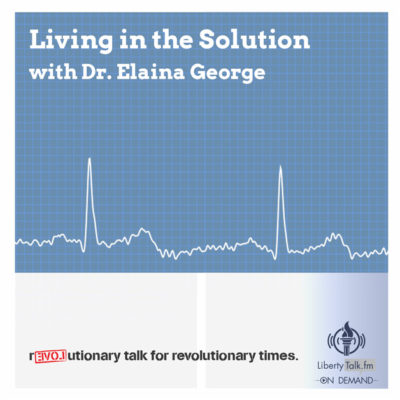And in the other corner comes the challenger — the novel coronavirus discovered in 2019, a menacing upstart responsible for unleashing the dreaded COVID-19 disease that has caused a worldwide panic.
Undoubtedly, the most direct damage caused by the coronavirus has been the tragic toll in human lives, not just in the United States but worldwide. The collective effort to work together to mitigate the spread of disease and treat the ill has been the top priority, and rightfully so.
The steps taken to protect lives, however, has caused collateral damage in forms not very familiar to this generation of Americans — namely, the wholesale loss of personal liberty. A long list of restrictions imposed by our government “of the people, by the people and for the people” means that the current crisis not only threatens lives but also threatens fundamental freedoms.
Our Constitution has been challenged before and in historically significant ways — from its embryonic defect of failing to abolish slavery to the destructive force of the Civil War. Throughout every chapter of American history — from the days of legal racial discrimination to the War on Terror — our Constitution has bent but has never broken.
But rarely, if ever, have we experienced such a rapid and extensive succession of new dictates by government affecting the personal freedoms of so many.
Across the United States, Americans have been ordered to shut down businesses; to refrain from assembling together in groups; to suspend regular in-person worship services; to stay at home; to cancel travel plans; to skip visits with hospitalized loved ones; and the list goes on.
Some authorities have even discussed criminalizing communication — such as social media posts — that they deem to be spreading misinformation about the coronavirus.
All these restrictions are connected to constitutional freedoms we take for granted in more normal times, such as the rights to peaceful assembly, religious practice and free speech.
Some commentators proclaim that these measures have been unjustified from the very beginning.
“It’s one thing if people are purposely and openly undermining public health,” writes columnist David Harsanyi. “The constitutional right to assemble peacefully and protest or practice your religion, however, is not inoperable in the presence of a viral pandemic.”
In the face of immediate crises, though, we Americans have demonstrated a willingness to tolerate a brief curtailment of our freedoms in order to meet existential challenges and serve the public good.
But what about longer term? The voluntary suspension of our natural rights in the face of a serious health emergency is one thing. The government mandating our rights away is quite another. Any restrictions must be grounded in reliable data that connects the freedom lost to the danger presented. And we cannot rest until we find our lost freedoms restored.
So in this latest bout, will the response to coronavirus wear down our constitutional liberties? Will Americans throw in the towel and accept these new restrictions as normal even after we have successfully dealt with this public health emergency?
One thing is certain: To safeguard our precious liberties, we need all freedom-loving Americans to rally to the Constitution’s corner.
That means staying watchful not only for hostile takeovers of our rights but also for the unintended consequences of well-intentioned infringements.
James Madison, who is credited with writing the Constitution (including the Bill of Rights), advised his countrymen to stay eternally vigilant.
“There are more instances of the abridgment of the freedom of the people by gradual and silent encroachments of those in power,” he said, “than by violent and sudden usurpations.”
At present, the match between the Constitution and the coronavirus remains in the early rounds, and saving lives must remain the current focus.
When the final bell sounds, though, who will still be standing?
Our history says the Constitution. The answer is up to us.


